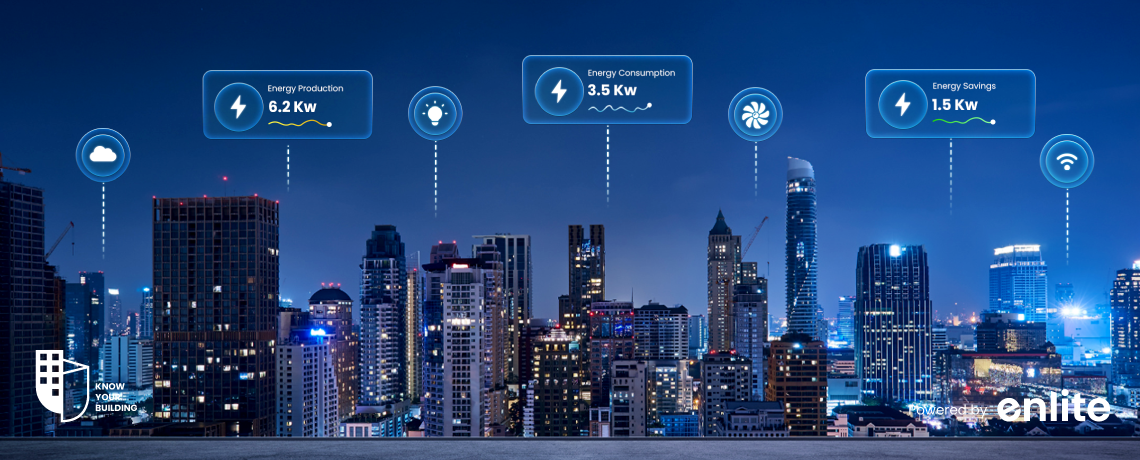Key Fact: Buildings are responsible for nearly 40% of global energy consumption, with commercial buildings accounting for a significant portion of that figure. As the push for sustainability intensifies, the real estate industry is turning to smart buildings to optimize energy usage and reduce carbon emissions.
Key Fact: Smart buildings equipped with advanced Building Management Systems (BMS) can reduce energy consumption by up to 30%, significantly lowering operational costs and environmental impact.
In today’s world, the integration of smart technologies in buildings is not just a trend; it’s a necessity. Smart buildings leverage cutting-edge technology to monitor and manage energy usage in real-time, ensuring that resources are used efficiently and sustainably. Central to this capability is the Building Management System (BMS). Enlite’s BMS is designed to optimize energy usage, enhance operational efficiency, and help buildings achieve their sustainability goals.
Understanding Smart Buildings and Energy Optimization
A smart building is a facility that uses advanced automation and integration to control its operations. From HVAC and lighting to security systems, smart buildings rely on a network of sensors and data analytics to optimize performance. Energy optimization is a key focus, as these buildings aim to reduce energy waste and enhance efficiency, contributing to broader sustainability efforts.
How Enlite’s BMS Enhances Energy Optimization in Smart Buildings
1. Real-Time Energy Monitoring and Control
Enlite’s BMS offers real-time monitoring and control of energy consumption across various building systems. By continuously analyzing data from HVAC systems, lighting, and other energy-intensive operations, the BMS ensures that energy is used only when necessary. This real-time capability significantly reduces energy waste and ensures optimal performance throughout the building.
2. Integration with Renewable Energy Sources
Smart buildings often incorporate renewable energy sources like solar panels and wind turbines. Enlite’s BMS integrates these sources into the building’s energy management strategy, balancing the use of renewable and traditional energy sources. This integration not only enhances energy optimization but also reduces the building’s reliance on non-renewable resources, furthering its sustainability goals.
3. Predictive Maintenance and Energy Efficiency
One of the standout features of Enlite’s BMS is its predictive maintenance capability. By continuously monitoring equipment performance, the BMS can predict when maintenance is needed, preventing potential failures and ensuring that systems operate at peak efficiency. This proactive approach minimizes energy waste and extends the lifespan of building systems.
4. Data-Driven Energy Optimization
Data plays a crucial role in the operation of smart buildings. Enlite’s BMS collects and analyzes vast amounts of data to identify patterns and inefficiencies in energy usage. Facility managers can use this data to make informed decisions about energy-saving measures, leading to continuous improvements in energy efficiency.
5. Automated Energy Management
Automation is a hallmark of smart buildings, and Enlite’s BMS excels in automating energy management tasks. Whether it’s adjusting lighting levels based on occupancy or optimizing HVAC operation according to weather conditions, the BMS ensures that energy is used efficiently, with minimal intervention required from facility managers.
Achieving Sustainability Goals with Enlite’s BMS
Smart buildings equipped with Enlite’s BMS are well-positioned to achieve their sustainability goals. By optimizing energy usage, reducing carbon emissions, and lowering operational costs, these buildings contribute to a greener future while also offering financial benefits to property owners and managers.
Get a free consultation today to discover how Enlite’s Building Management System can help your smart building achieve unparalleled energy optimization and sustainability. Contact us to learn more.














